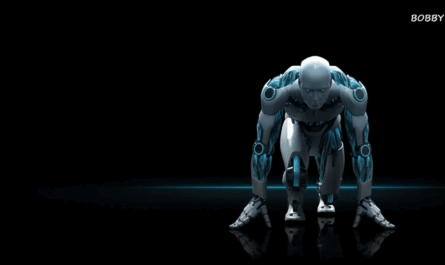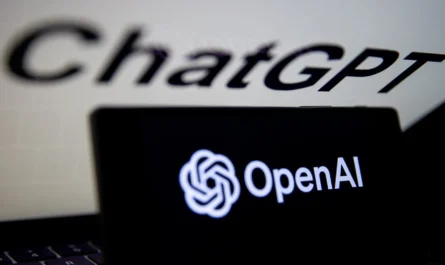Chinese tech giant Baidu has taken a bold leap forward in artificial intelligence by unveiling a series of innovative products designed to revolutionize the way people interact with AI. The announcements, covered by Reuters, include AI-powered smart glasses, a text-to-image AI generator called I-RAG, and Miaoda, a no-code app builder that enables anyone to create applications without programming knowledge. Together, these offerings highlight Baidu’s ambition to bring AI from the lab to everyday users while addressing persistent challenges in the industry.
At the core of Baidu’s AI push is I-RAG, a next-generation text-to-image tool. One of the major problems in generative AI has been “hallucinations”—instances where AI generates outputs that do not accurately reflect the user’s input. I-RAG tackles this problem by leveraging Baidu’s vast search engine capabilities to ensure that images created from textual prompts are more precise and contextually relevant. This means designers, artists, and content creators can now generate high-quality visuals that closely align with their original ideas, reducing the need for post-production edits or corrections.
Miaoda: Empowering Users to Build Apps Without Coding
In addition to I-RAG, Baidu introduced Miaoda, a no-code platform that democratizes app creation. Powered by Baidu’s Ernie large language model (LLM), Miaoda can automatically generate functional code from user inputs, even for those with minimal technical skills. Users simply define app requirements, features, and workflows, and Miaoda transforms these instructions into operational applications.
This no-code approach addresses a growing demand in the tech world: the ability to rapidly prototype and deploy applications without hiring developers. Small businesses, educators, and individuals can now leverage AI to build software solutions tailored to their needs. By combining user-friendly interfaces with Ernie’s advanced AI capabilities, Miaoda makes professional-grade app development accessible to a far broader audience than traditional coding platforms allow.
Ernie LLM: The Engine Behind Baidu’s AI Ecosystem
Baidu’s Ernie platform, launched in 2023, has rapidly evolved to compete with industry-leading AI systems such as OpenAI’s ChatGPT and Anthropic’s Claude. Ernie now supports 1.5 billion daily interactions, up from 200 million in May of the same year, demonstrating remarkable scalability and user adoption. The platform powers both I-RAG and Miaoda, providing a robust foundation for Baidu’s growing ecosystem of AI tools.
Ernie’s large-scale language understanding allows it to generate accurate code, contextual image outputs, and smart recommendations. By integrating these capabilities into practical applications, Baidu is bridging the gap between advanced AI research and real-world use, enabling professionals and casual users alike to harness AI effectively.
AI-Powered Smart Glasses: Wearable Intelligence
Beyond software, Baidu is also expanding into hardware with its Xiaodu AI smart glasses. Equipped with cameras and powered by Ernie, these smart glasses aim to compete with Meta’s AI-enabled eyewear. They integrate seamlessly with Baidu’s suite of services, including Baidu Maps for real-time navigation and Baike, the company’s online encyclopedia. Users can receive contextual information, directions, and notifications directly through their glasses, enhancing productivity and convenience.
Robin Li, Baidu’s CEO, emphasized that the company is focusing on modular, task-specific AI solutions rather than the “super app” approach common in China, where a single application attempts to perform a wide range of functions. By prioritizing modularity, Baidu ensures each AI tool excels in its intended purpose, providing superior usability and efficiency.
Practical Implications of Baidu’s AI Suite
The practical implications of these launches are significant. For creatives, I-RAG reduces the risk of generating inaccurate images, improving efficiency in industries such as marketing, advertising, and media. For non-technical users, Miaoda opens the door to creating apps that previously would have required extensive coding knowledge. Meanwhile, Xiaodu smart glasses bring AI into the physical world, offering hands-free access to information and services in real time.
This combination of tools reflects a broader strategy: integrating AI into daily life while addressing key pain points. By focusing on accuracy, accessibility, and usability, Baidu is positioning itself as a leading innovator in AI, targeting both software and hardware domains.
Tackling AI Hallucinations with I-RAG
Generative AI has faced scrutiny due to hallucinations, where outputs diverge from intended instructions. For professionals relying on AI-generated visuals, this can create costly mistakes or misaligned content. I-RAG solves this problem by tapping into Baidu’s search capabilities, cross-referencing data to ensure AI-generated images are grounded in reality. This alignment is particularly valuable in professional contexts where accuracy matters, such as e-commerce, digital content production, and educational materials.
By mitigating hallucinations, I-RAG improves trust in AI tools, encouraging broader adoption and enabling users to rely on AI as a reliable assistant rather than a creative gamble.
Democratizing App Development with Miaoda
No-code solutions like Miaoda are changing the landscape of software development. Traditionally, creating applications required deep technical expertise, often limiting access to skilled developers. Miaoda’s AI-driven approach removes this barrier, translating user instructions into executable code automatically.
This democratization is crucial for small businesses and startups that cannot afford extensive development teams. It also empowers educators and hobbyists to experiment with app creation, fostering innovation and creativity across multiple sectors.
AI Smart Glasses: Real-Time, Hands-Free Assistance
The Xiaodu smart glasses bring AI interaction into the physical world, enabling users to access information on demand. Whether navigating a busy city, retrieving information from Baike, or receiving real-time updates, these glasses provide a hands-free interface powered by Ernie. This technology is especially relevant for mobile professionals, students, and travelers, offering contextual insights without interrupting daily activities.
Strategic Outlook and Market Trends
Baidu’s strategic focus on modular, task-oriented AI solutions positions the company to capture significant market share as global investment in AI infrastructure approaches $1 trillion, according to Goldman Sachs. By delivering practical, high-quality AI tools like I-RAG, Miaoda, and Xiaodu smart glasses, Baidu is transforming research into commercially viable products.
This approach reflects a shift in the tech industry: moving from theoretical AI research to real-world applications that solve concrete problems. By offering specialized tools rather than attempting to combine multiple functionalities into a single platform, Baidu ensures a superior user experience and faster adoption rates.
Conclusion
Baidu’s latest announcements demonstrate its commitment to creating AI tools that are accurate, user-friendly, and accessible. With I-RAG, the company addresses generative AI hallucinations and enhances creative workflows. Miaoda empowers non-coders to develop functional apps, while Xiaodu smart glasses integrate AI directly into everyday life.
By leveraging the Ernie LLM and focusing on modular solutions, Baidu is positioning itself at the forefront of AI innovation, delivering products that are not only cutting-edge but also practical and usable. As global AI adoption grows, Baidu’s suite of tools promises to transform industries, empower individuals, and expand the possibilities of artificial intelligence in both software and hardware domains.




